#CorporateCulture
Opinion: Automakers Are Overstepping Their Boundaries
General Motors now requires salaried employees operating in the United States to disclose their coronavirus vaccination status. As confirmed by the automaker on Thursday, the decision is supposed to help the company determine what percentage of its own workforce is vaccinated so it can make better decisions about which safety protocols to implement. But your author is under the assumption that “as many as possible” will always be the preferred answer.
Earlier in the month, GM forced all salaried employees to disclose whether or not they were immunized for COVID-19 using the automaker’s internal network. Those answering to the affirmative were required to submit proof of vaccination by last Monday. But it sounds as though the manufacturer is just getting warmed up for more invasive activities.
Ford Postpones On-Site Work Until 2022, Considers Vaccine Mandates
On Wednesday, Ford Motor Co. told employees that it would delay plans for on-site work due to coronavirus concerns relating to the delta variant. Non-site-dependent staff are being told they stay home for the rest of 2021, while line workers will still be required to come in so long as there’s a job to be done — creating a dichotomy between white and blue-collar workers.
While Ford has encouraged some teams to come back to the office for various projects, it has repeatedly delayed its return-to-work timeline. Workers now being told to stay home until 2022 were previously informed they’d be coming back to the office in October. Before that, everyone thought it would be business as usual by the summer. Now the company is adopting a policy that has most people staying home even after 2022 as often as possible while it considers mandating vaccines.
Continental Commissions Curious Study About Its Own Nazi History
Continental commissioned an independent researcher to see what it was up to in the 1940s, with the auto parts supplier issuing a press release detailing the results.
“The study shows that Continental was an important part of Hitler’s war machine,” said CEO Dr. Elmar Degenhart, before adding, “We commissioned the study in order to gain more clarity about the darkest chapter in our company’s history. That’s why we specifically included those companies that were not part of Continental at the time. The study is a consciously chosen opportunity and a renewed motive for us to face up to our responsibility and, on the basis of past experiences, to understand our identity more clearly and to create a better future.”
The company has decided to not only “take responsibility” for acts committed 70-plus years ago, but to also include businesses that were complicit with the National Socialist German Workers’ Party (NSDAP/Nazi) long before they joined its ranks.
Tomorrow's Triumph? Mitsubishi Motors Reinventing Itself, Making Moves
Watching Mitsubishi return from death’s door has been less exciting than the first part of this sentence makes it sound. Part of that stems from the automaker’s position as a multinational corporation that has lost its way and not some down-on-his-luck boxer you’re supposed to be rooting for in a movie. Even if you were inclined to clap for corporate comebacks, Mitsubishi hasn’t earned its standing ovation just yet.
While the brand’s U.S. sales have improved every year since 2013, progress has been gradual. Last year, Mitsubishi moved 118,074 autos inside America — the best it has managed since before the Great Recession, but nowhere near its 2002 high of 345,915 deliveries. That might paint the situation a bit darker than it actually is, however.
Mitsubishi has actually managed to retain customers in China far better than it could in the U.S. and its European sales are higher than they’ve ever been. The Japanese firm also has a strong footprint in numerous developing markets around the world. But North America has historically been an extremely important market for Mitsubishi, and it wants its market share back, so it’s making some additional changes.
Despite Falsified Supplier Data, Japanese Automakers Claim Cars Are Safe
Kobe Steel, the disgraced Japanese metal supplier, apparently falsified quality data for its products for over 10 years, the company now admits. Some of those products were sheetmetal and aluminum components used by a slew of automakers, among them American, Japanese, French, German, and Swedish manufacturers.
Makers of trains and airliners also made use of the metals, the strength and durability of which is now in doubt. This week, the European Aviation Safety Agency warned against components made by Kobe Steel.
While Boeing and Airbus inspect their aircraft, automakers are doing the same. Ford has said there’s no reason to be concerned, as Kobe product only went into the hood of a Chinese-market sedan. Now, four other automakers have given their vehicles a clean bill of health.
CEO Says It Could Be 'Years' Before Volkswagen Gets Its Corporate Culture Under Control
Volkswagen has attempted to portray itself as a kinder and more responsible automaker in the wake of its emissions cheating scandal. However, CEO Matthias Müller says convincing middle management to change has proven exceptionally difficult. VW has been pushing to become — or at least seem like — a more transparent company that has decentralized its rigid management hierarchy.
“There are definitely people who are longing for the old centralistic leadership,” Müller stated during a meeting with business representatives on Monday. “I don’t know whether you can imagine how difficult it is to change their mindset.”
It’s been 20 months since the diesel emissions scandal entered the news cycle and Müller took over as chief executive. Throughout that time, VW’s top executives have tossed mid-level employees under the bus on numerous occasions. While there is little reason to doubt some might have trouble adjusting to a new corporate climate, it would be nice to hear top brass taking any semblance of responsibility once in a while — even on something minor like this.
Company Whistleblower Behind Latest Recall of 240,000 Hyundai, Kia Vehicles
He lost his job for it, but Kim Gwang-ho, a 25-year Hyundai veteran at the automaker’s Seoul, South Korea facility, knew he needed to speak out.
The engineer blew the whistle on his employer, reporting the automaker to both South Korean and American officials after uncovering evidence Hyundai was covering up a defect in several of its models. Kim even published internal documents to back up his claim.
Kim, 55, was fired from his job, but authorities took note. As a result, a further 240,000 vehicles — totaling 12 models — have been added to a recall already 1.4 million strong.
Uber Loses Another Executive as Self-driving Program Head Quits
Despite having put in as much testing time as most of the major players, experts have remained skeptical of Uber’s autonomous driving program. This isn’t because it lacks the necessary technology or hardware, but because it lacks a stable corporate environment. There have been no shortage of ugly headlines surrounding the company this year, and it’s beginning to hemorrhage essential staff members. This week, Uber lost its vice president of global vehicle programs, Sherif Marakby, and sustained another blow to its self-driving aspirations and pride.
While the ride-haling service has declined to elaborate on the reasons for Marakby’s exit, he had only been with the company since last April. After twenty-five years with Ford, Uber poached him specifically for his expertise in autonomous development and electronic safety systems.
This loss follows the departure of Uber’s president, vice president of product and growth, senior director of engineering, its head of communications, head of AI labs, and numerous members of its self-driving programs — all within the last few months.
As Uber Implodes, President Jeff Jones Cancels His Six-Month Ride
Uber’s president Jeff Jones is quitting the car-hailing business after a brief six-month stretch.
Jones’ choice of a swift departure is essentially down to the company’s controversy laden decisions and apparent degenerate corporate culture. In addition to allegations of widespread sexual harassment, Uber has managed to routinely anger local governments by ignoring autonomous testing laws and by employing algorithms that denied service to potential investigators, regulators, or law enforcement officials. It’s also been accused of property theft, and CEO Travis Kalanick is exhibiting behavior unlikely to win people over.
It’s a real shit show.
Volkswagen Doesn't Trust Its Employees With Pokemon Go
The powers that be at Volkswagen aren’t big fans of the Pokémon Go app. While most people think of it as a fun and nerdy augmented reality game, the automaker’s executives see it as a one-way ticket to industrial espionage.
Because of this, Volkswagen’s 70,000 employees are forbidden from installing the app on their company phones, according to the German publication Bild (via Carscoops).
VW Group Board Supporting Winterkorn In Leadership Conflict
VW Group CEO Martin Winterkorn gained a few key supporters in the leadership conflict between he and chairman Ferdinand Piëch.
GM Corporate Culture Silenced Whistleblower Over Fuel-Leak Recall
To say General Motors has a failure to communicate among itself and with the outside is an understatement that grows with each passing day, especially in light of how it treated a whistleblower in 2003 over its handling of a recall regarding fuel leaks in the automaker’s line of compact SUVs.
Feinberg: Report On GM Victims Compensation "Weeks Away"
The Detroit News reports Kenneth Feinberg, whose services were retained by General Motors regarding compensation for victims of the out-of-spec ignition switch linked to 47 accidents and at least 13 fatalities, stated an announcement regarding compensation is “a few weeks away.” Feinberg adds that while his client may be making its own statement on the matter, “it will not include any details about a compensation plan since no such plan yet exists.” The attorney has worked on similar programs in the past, including those affected by the 2011 BP/Deepwater Horizon disaster, Agent Orange, asbestos and the attacks in New York, Pennsylvania and Washington, D.C. in early September of 2001.
Congressional Hearings Loom As Switch Swap Raises Questions At GM
General Motors is facing two separate lawsuits related to failures of the ignition switch recalled last month, while also preparing to bring their case before the U.S. House Energy and Commerce Committee next month, led by a representative who honed his skills upon Firestone.
Meanwhile, reports of a quiet swap between the defective ignition switch and an improved switch in 2006 – a swap that may have violated internal protocols -may have serious repercussions for GM and now-bankrupt supplier Delphi.
Finally, a test drive gone wrong results in a GMC Yukon left to burn, whose prompt investigation is only the beginning of a long learning process in how GM handles safety in the future.
Volkswagen Looks Within to Solve "The American Problem"
Despite giving the old college try for decades, Volkswagen is still confounded by the lack of cachet their namesake brand holds among the hearts and minds of many an American. With VW of America CEO Jonathan Browning stepping down and returning to the United Kingdom at the end of this year, the Wolfsburg automaker hope one of their own, successor Michael Horn, will be able to finally crack the code of success in the United States.



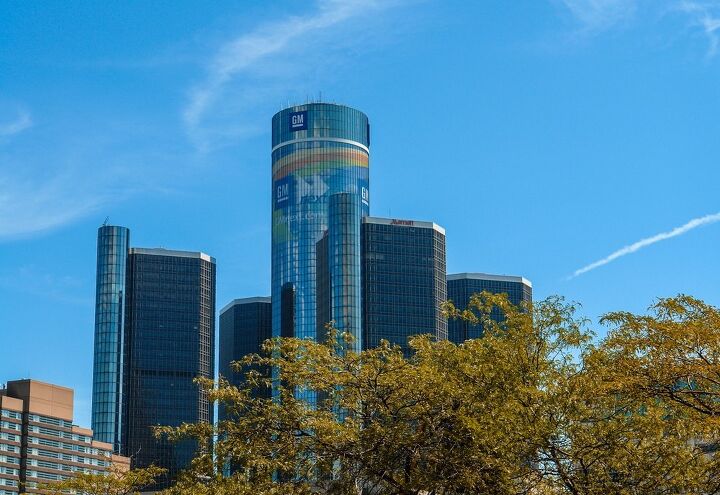

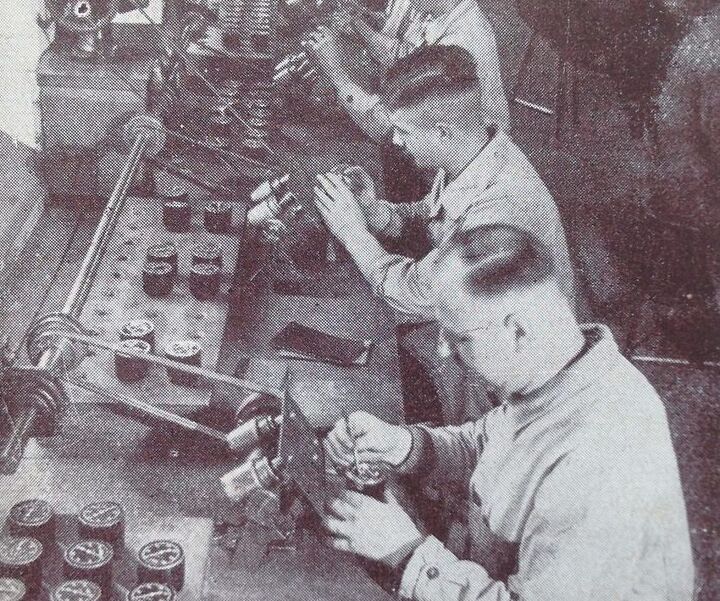


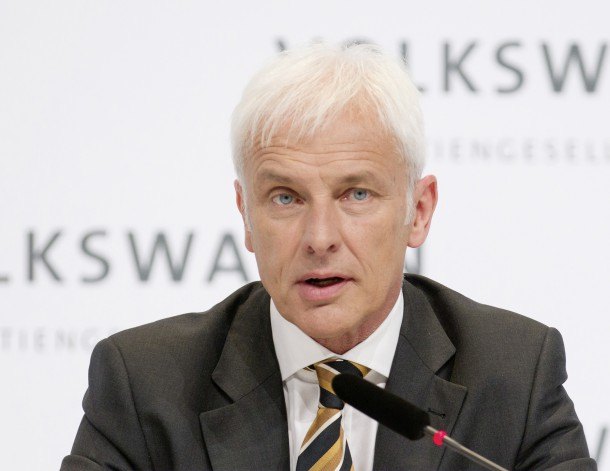
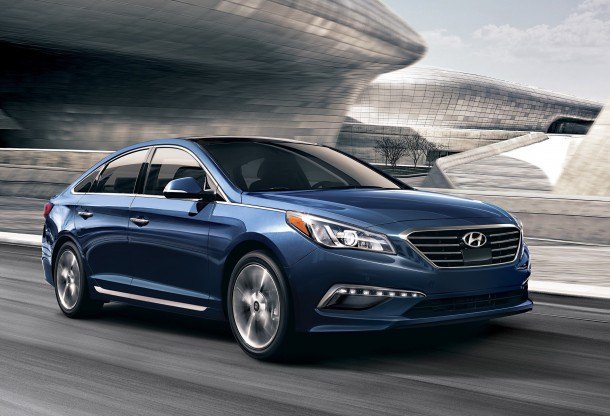



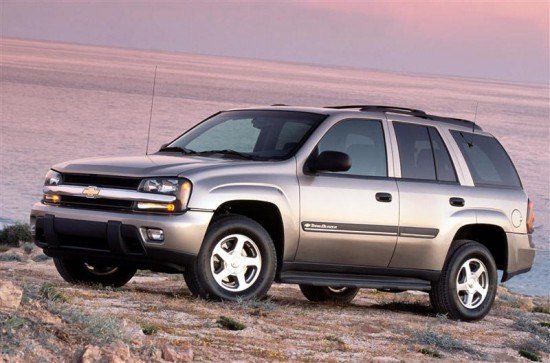
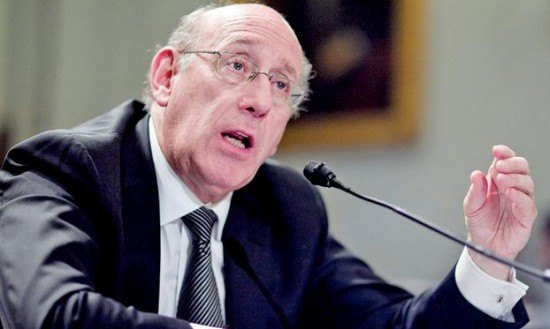

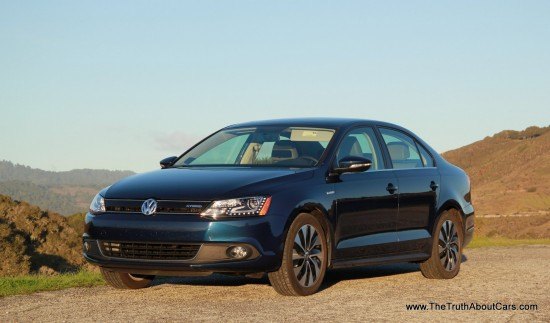












Recent Comments